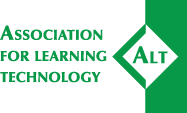Traxler, John (2016) Inclusion in an age of mobility. Research in Learning Technology, 24. ISSN 2156-7077
|
PDF
Download (281kB) | Preview |
|
|
Other (EPUB)
Download (289kB) |
||
|
HTML
Download (116kB) |
||
|
XML
Download (121kB) |
Abstract
Learning with mobiles in UK universities is not new and is not novel. It is, in fact, at least 10 years old, well-documented and comparable to activity in universities elsewhere in Western Europe, America and Asia Pacific. Continued and dramatic changes in the ownership, access and expectations of mobiles amongst university students and equally across UK society have suddenly propelled learning with mobiles to centre-stage as a feasible proposition but, it is now argued, only if students can bring-your-own-device. This has already catalysed discussion about authority, agency and control within university settings but the equally significant and profound implications for the inclusion agenda have not been articulated. This paper begins that process. A theoretical framework for social inclusion in this context is considered, identified and discussed. The paper reviews the progress and problems of the substantial and unique programme of mobile learning across UK higher education since 2000 in relation to its stance on inclusion, where this is apparent. These are all well-documented in academic and official sources; the paper does however also draw on the author's involvement in many of the events and initiatives. The paper raises however significant questions about this programme's meaning and direction in a world where now there is more, better, cheaper, faster, newer but different digital technology in the hands of students, potential students and everyone else than there is routinely in the educational institutions themselves. This digital technology, mobile technology, now allows learners to create, own, transform, discuss, discard, share, store and broadcast ideas, opinions, images and information, and to create and transform identities and communities. The paper argues that this epistemological revolution may mean that universities and colleges are no longer credible and authoritative gatekeepers to knowledge and its technologies and so the meaning and relevance of inclusion are much less clear. The paper proposes a new stance on inclusion.
| Item Type: | Article |
|---|---|
| Subjects: | L Education > L Education (General) T Technology > T Technology (General) |
| Divisions: | ALT-J Journal |
| Depositing User: | Miss Kristina Petersen |
| Date Deposited: | 02 Nov 2017 11:22 |
| Last Modified: | 02 Nov 2017 11:22 |
| URI: | http://repository.alt.ac.uk/id/eprint/2397 |
Actions (login required)
 |
View Item |
